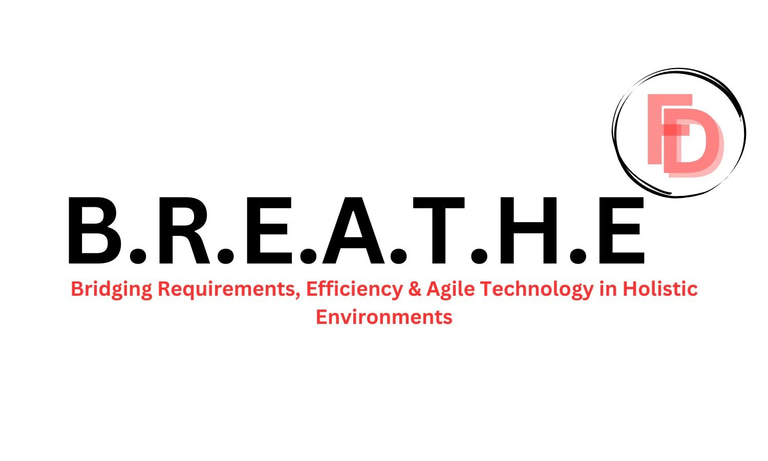LEVERAGING ON SAP INDUSTRY PROCESS FRAMEWORK (Issue I)
SAP Industry specific framework has series of tailored solutions that are industry specific that can be leveraged for efficient ERP and scalable processes.
Fafure David
12/25/20242 min read
The SAP Industry Process Framework is the SAP’s structured solutions and methodologies designed to meet the specific operational and business requirements of various industries. These frameworks align with industry best practices, regulatory standards, and unique business models, enabling companies to leverage SAP's enterprise resource planning systems for efficient and scalable processes.
SAP Industry Process Framework Components
Industry-Specific Solutions (IS-Solutions)
SAP offers industry-specific modules and configurations to address unique requirements. Examples include:
SAP IS-Retail: Tailored for the retail industry.
SAP IS-Utilities: Designed for utility companies.
SAP IS-Oil & Gas: Optimized for energy and petroleum sectors.
SAP IS-Healthcare: Focused on patient management and compliance.
SAP IS-Banking: Addresses financial services needs like loan management and compliance.
Best Practices Library
SAP provides predefined business processes aligned with global best practices. These templates streamline implementation and reduce customization efforts.
Process Integration
SAP frameworks ensure seamless integration across modules and systems, enabling end-to-end process flows. For example:
Procure-to-Pay (P2P): Integrates SAP MM with FI and WM.
Order-to-Cash (O2C): Links SAP SD with FI and MM.
Regulatory Compliance
SAP frameworks incorporate compliance requirements specific to industries, such as:
Tax regulations in SAP S/4HANA Finance.
Healthcare regulations in SAP IS-Healthcare.
Environmental and safety compliance in SAP EHS.
Scalability and Flexibility
The frameworks are designed to grow with businesses, enabling scalable operations and flexible configurations to adapt to new market dynamics.
Benefits of SAP Industry Process
Efficiency
Predefined industry templates reduce implementation time and ensure operational efficiency.
Standardization
Ensures uniform processes across the organization, improving consistency and control.
Customization
Offers configurable modules that allow businesses to align SAP solutions with their unique requirements.
Regulatory Adherence
Built-in compliance tools simplify adherence to local and international regulations.
Data-Driven Insights
Industry frameworks leverage SAP’s analytical tools to provide actionable insights tailored to specific industry KPIs.
Seamless Integration:
SAP’s frameworks ensure interoperability across different business units and third-party systems.
Industry-Specific SAP Processes
Manufacturing Industry
Production Planning and Control (PP)
Manage production schedules and capacity planning.
Integration with SAP MM for materials and SAP QM for quality checks.
Retail Industry
Merchandise and Assortment Planning (MAP)
Plan product assortments, seasonal offerings, and inventory levels.
Utilities Industry:
Customer Service Management (CS):
Handle billing, service requests, and asset management for utilities.
Banking Industry:
Loan and Mortgage Management:
Automates lending processes and ensures regulatory compliance.
SAP Tools Supporting the Framework
SAP Activate
A methodology combining best practices, guided configuration, and project management to ensure successful SAP implementation.
SAP Solution Manager
Provides tools for process monitoring, testing, and documentation.
SAP Industry Cloud
Cloud-based solutions tailored for industry-specific use cases, ensuring agility and innovation.
SAP Business Technology Platform (BTP)
Enables custom application development and data integration, enhancing industry-specific frameworks.
Challenges and Considerations
Complexity
Tailoring SAP frameworks for highly specialized industries may require significant customization.
Change Management
Organizations must align internal processes and train employees to adopt SAP’s industry-specific solutions effectively
Cost
Implementing industry-specific frameworks can involve higher costs, depending on the level of customization and scale.
The SAP Industry Process Framework empowers organizations across industries to streamline their operations, adhere to best practices, and remain compliant with regulations. By offering tailored solutions, SAP ensures businesses can achieve efficiency, scalability, and innovation. This framework is instrumental in enabling organizations to leverage ERP systems as strategic tools for growth and competitiveness.
